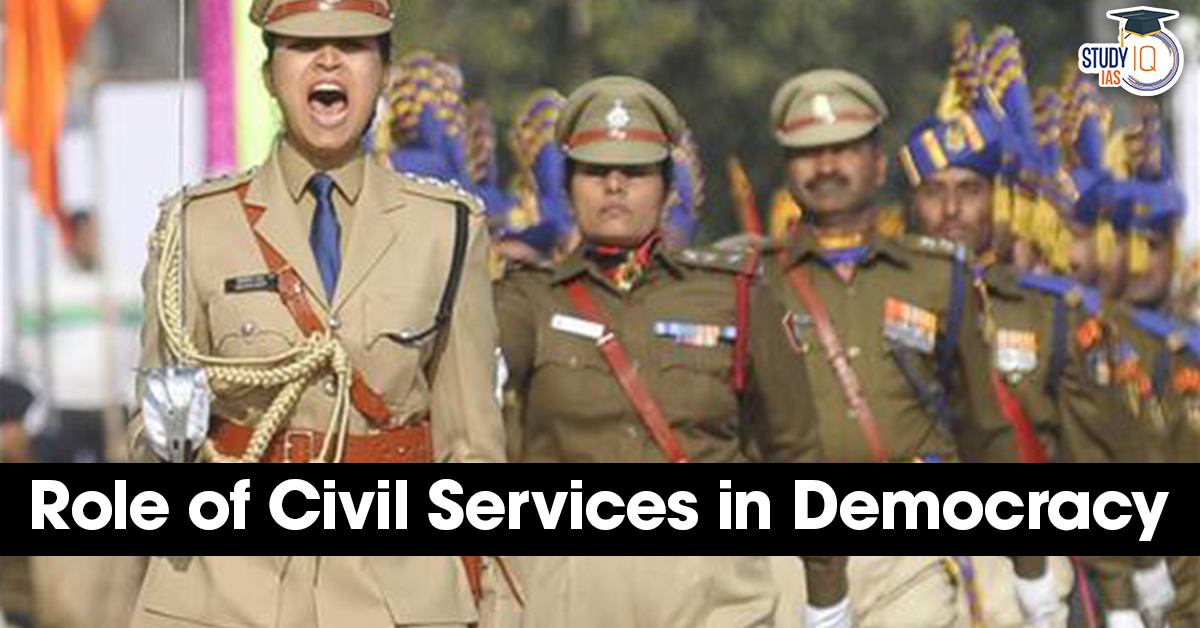Table of Contents
Context: On Civil Services Day (April 21), there is a renewed emphasis on the importance of lateral entrants and the need for enhanced transparency in governance.
Role of Civil Services in Democracy
- Ensuring Administrative Continuity: Civil servants maintain governance during political transitions, such as President’s Rule or elections.
- Conduct of Free and Fair Elections: They assist the Election Commission in conducting impartial elections at all levels.
- Policy Formulation and Advice: Serve as key advisors to the political executive, leveraging institutional memory and administrative experience.
- Implementation of Government Schemes: Execute development programmes and monitor the delivery of public services.
- Crisis and Relief Management: Plays a central role in disaster response and public health emergencies.
| Merit vs. Spoils System |
|
Key Challenges Facing Civil Services
- Erosion of Political Neutrality: Increasing political interference in postings and decisions undermines impartiality.
- Generalist Bias: Lack of domain expertise among career bureaucrats hampers effective handling of complex technical issues.
- Corruption and Lack of Accountability: Corruption persists across levels, often without timely disciplinary action.
- Process-Oriented Culture: Excessive focus on procedures and compliance rather than outcomes and impact.
- Slow Adaptation to Change: Resistance to innovation, digital governance, and participatory approaches.
Also Read: Civil Service under British Administration
Reforms to Strengthen Civil Services
- Insulate from Political Interference: Ensure fixed tenure and transparent transfer/posting policies.
- Empower Civil Services Boards for cadre management.
- Focus on Outcomes Over Process: Shift monitoring from inputs/outputs to performance-based outcomes.
- Use data and impact assessments for governance evaluation.
- Lateral Entry of Experts: Recruit domain specialists at senior levels for technical and managerial roles.
- Balance between generalists and specialists for holistic decision-making.
- Ethical Reorientation: Institutionalise integrity training and strengthen vigilance mechanisms.
- Strengthen whistleblower protection and grievance redressal systems.
- Performance Appraisal Reform: Make Annual Performance Appraisal Reports (APARs) more objective and 360°-based.
- Link promotions and assignments to performance indicators.
Conclusion
India’s civil services are central to the functioning of its democracy. However, to meet the dynamic governance challenges of the 21st century, they need to be reoriented with greater professionalism, transparency, and focus on outcomes. Ensuring political neutrality and embracing reform will be key to preserving their credibility and effectiveness.


 Particularly Vulnerable Tribal Groups (P...
Particularly Vulnerable Tribal Groups (P...
 Geo-tagging of Buildings During Upcoming...
Geo-tagging of Buildings During Upcoming...
 Gender Gap in Educational Expenditure in...
Gender Gap in Educational Expenditure in...

























